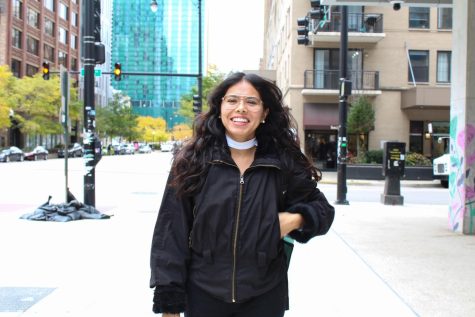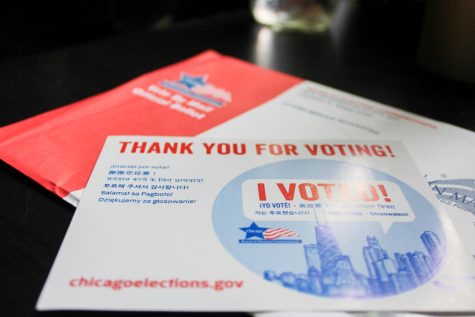International students experience living in the US without the ability to vote
October 26, 2022

Lynreshay Johnson has lived in the U.S. for six years and witnessed many changes, such as the administrations of three U.S. presidents, the legalization of cannabis in Illinois and the overturning of Roe v. Wade, though all she could do was watch from the sidelines as an international student.
Johnson, a second-year arts management graduate student, is from the Bahamas and has never voted at home or in the U.S., like many other international students.
During the 2020-2021 school year, international students across the U.S. made up 4.6% of the student population, a total of 914,095 people, according to Open Doors statistics. With the midterm elections around the corner, these students are still not given the right to vote as most citizens are, despite having attended school in the U.S.
When watching the 2016 presidential election, Johnson gathered with other international students waiting excitedly for results and learning more about the country’s politics, but the outcome of former President Donald Trump being elected left her disappointed.
This midterm election season, Johnson said she hopes people who can vote will choose representatives who will speak for everyone.
“People usually vote for who they say is very Americana, but I feel like sometimes that can be very exclusive,” said Johnson, who hopes voters will start “thinking more about how that person would affect the lives of other people living here, like ourselves, who can’t vote in this country.”
Some students chose to participate in elections indirectly, by encouraging others to vote. One of them is Francia Garcia Hernandez, an international civic media graduate student from Mexico, who is a member of Columbia Votes.
From 2016 to 2020, Columbia Votes helped increase Columbia’s voting by nearly 16% according to the National Study of Learning, Voting and Engagement, as reported by the Chronicle.
“For me, encouraging people who can vote was something important; it’s a labor of civic engagement,” Hernandez said. “Even though I cannot vote in the US, … I think it’s important for people to realize that their vote matters and that they can influence the way things are and change them for the better.”

Another way Garcia Hernandez demonstrates civic engagement is by volunteering in local Chicago organizations and working as a reporter for AustinTalks.
“I can’t vote and that’s frustrating, but that’s why I joined Columbia Votes or I do a lot of like civic engagement at work,” Hernandez said. “I try to inform others about what’s happening so that people are aware of these issues that affect many people’s reproductive and health rights. That’s a way that I can do something about it and not feel powerless.”
One of the most significant recent changes in U.S. laws has been the lack of protection of abortion rights in much of the country after the overturning of Roe v. Wade earlier this year. This directly affected and frustrated international student Celine Derger, a sophomore acting major.
Derger came to the U.S. a year ago from Germany at 20 years old, and due to timing, she has never voted in her life. Despite this inability, she plans to stay in the U.S. after graduation if she gets a job offer.
To show her civic pride and engage in the political process, Derger said she tries to attend protests, pride parades and women’s marches.
“Even though I can’t vote, I could engage myself in political discussions or go to protests; I would want to do that,” Derger said.
Derger urges other international students to voice their opinions and encourages those who can to vote.
“If you live in a country, the country’s decisions will affect you even if you are not a citizen,” Derger said. “I don’t see why international students or … people who live here long-term, why they shouldn’t be able to vote.”







